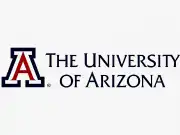Bachelor's degree programs in the USA
- Overview of Bachelor's Programs in the USA
- Features of Bachelor's Programs in the USA
- Advantages of Bachelor's Programs in the USA
- Disadvantages of Bachelor's Programs in the USA
- Admission Requirements for Bachelor's Programs in the USA
- Application Documents for Bachelor's Programs in the USA
- Job Search After a Bachelor's Program in the USA
- FAQ – Frequently Asked Questions

Bachelor of Fine Arts - Game Design
New York Film AcademyStudents in NYFA's Bachelor of Fine Arts (BFA) in Game Design program learn the fundamentals of video game art, technology, design, narrative storytelling, and business. Students learn about the major aspects that comprise video game genres and how to successfully use them to develop a successful…

Bachelor of Fine Arts - Entertainment Media
New York Film AcademyThe Bachelor of Fine Arts (BFA) - Entertainment Media degree program allows students to explore creative fields that best match their abilities and interests before delving into the further study of a focus. The BFA in Entertainment Media is an appropriate course of study for students who know they…

Bachelor - Sustainable Built Environments
The University of Arizona, USAStudents pursuing a Bachelor of Science in Sustainable Built Environments are prepared for careers in designing environmentally friendly buildings that suit their interests. With the help of advisers and knowledgeable faculty, students can create their specialized focus area within the General Emphasis…

Bachelor of Science - Business Analytics
The University of Arizona, USAStudents majoring in business analytics are prepared for professions that demand a broad understanding of business as well as a deep capacity to gather, use, and evaluate data in order to provide insights and offer useful suggestions for enhancing outcomes across a variety of functional business domains.

Bachelor of Science - Business Economics
The University of Arizona, USAGraduates of the Bachelor of Science in Business Administration program in Business Economics have a strong business background and an economist's viewpoint. This paradigm prepares students for professions addressing complicated societal concerns including unemployment and inflation as well as challenges…

Bachelor of Science - Business Management
The University of Arizona, USAWe are here to ensure that the significant investment you make in your Business Management major has a lasting effect. Get the knowledge and experience you need to get ready for management roles in a range of industries, in both small and large companies. Students gain experience working with others…

Bachelor of Science - Entrepreneurship
The University of Arizona, USATransform your passion for entrepreneurship into practical success. The Bachelor of Science in Business Administration in Entrepreneurship program at the University of Arizona's Eller College of Management is open to students who want to add a second major to another course of study. The New Venture…

Bachelor of Science - Marketing
The University of Arizona, USAThe goal of marketing is to plan, price, promote, and distribute goods and services through a series of interconnected economic activities. Marketing, according to the American Marketing Association, is "an organizational function and a set of processes for creating, communicating, and delivering…

Bachelor of Science - Cyber Operations: Cyber Engineering
The University of Arizona, USAEnroll in a program that has been named a Center of Academic Excellence in Cyber Operations by the National Security Agency for an interesting career in cybersecurity. The College of Applied Science and Technology offers two-degree options for students pursuing a Bachelor of Applied Science with a…

Bachelor of Science - Artificial Intelligence
The University of Arizona, USAStudents pursuing our B.S. in Artificial Intelligence program gain a thorough understanding of one of the most sought-after fields of technical development and application in the contemporary workforce. Students will collaborate with our exceptional teachers and gain technical skills while honing…
Briefly About Bachelor's Degree Programs in the USA
Obtaining higher education in the United States opens wide opportunities for career growth and personal development. Bachelor's programs at American universities are considered among the most prestigious in the world due to their flexible learning system, modern methodologies, and high level of graduate preparation.
A bachelor's degree in the USA is the first stage of higher education, typically lasting 4 years (in some cases 3.5-5 years depending on the program and student performance). Upon completion, graduates receive the following diplomas:
- Bachelor of Arts (BA) — бакалавр искусств
- Bachelor of Science (BS) – бакалар наук
In addition to standard BA and BS programs, many universities offer specialized degrees:
- Bachelor of Fine Arts (BFA) — for creative specialties
- Bachelor of Engineering (BEng) — in technical universities
- Bachelor of Business Administration (BBA) — in business schools
The average age of bachelor's students in the USA is 18-22 years, though many institutions actively accept "adult" students (25+ years), offering them flexible learning formats.
Key characteristics of bachelor's programs in the USA:
- Program flexibility – students can choose courses from different fields.
- Practical orientation – many courses include internships and projects.
- International recognition – diplomas from American universities are valued worldwide.
Features of Bachelor's Programs in the USA
The American education system differs from Russian and European systems. Here are the key features:
- Liberal Arts Education
In the first two years, students study general education disciplines (history, mathematics, natural sciences), then choose a specialization (major). This allows changing direction if interests evolve. - Credit System (Credit Hours)
To earn a diploma, students must complete 120-130 credits (1 credit ≈ 15-16 hours of study). - Emphasis on Independent Work
Students learn to analyze information, work in teams, and present their projects. - Double Major Opportunity
Students can simultaneously study two disciplines, for example economics and computer science. - Tutoring and Mentoring System
Most US universities provide:- Personal academic advisor
- Mentor from upperclassmen
- Career counselor
- International student coordinator
- Undergraduate Research Opportunities
Many bachelor's students participate in:- Research projects under professor supervision
- Interdisciplinary research
- Publications in academic journals
- Conferences and symposiums
Advantages of Bachelor's Programs in the USA
- High quality education – 8 of the top 10 universities worldwide are in the USA (according to QS World University Rankings).
- Wide program selection – over 4,000 institutions offer hundreds of specializations.
- Internships at leading companies – Google, Apple, Microsoft collaborate with universities.
- Flexibility and individualized approach – students can change specializations and select courses.
- International environment – students from different countries exchange experiences.
- Comprehensive student support – help centers, legal services, career placement offices
- Unique exchange programs – students can study abroad for a semester/year or earn dual degrees with partner universities
Disadvantages of Bachelor's Programs in the USA
- High cost – tuition at top universities ranges from $30,000–80,000 per year.
- Competitive admissions – requires SAT/ACT scores and high English proficiency (TOEFL/IELTS).
- Long adaptation period – different education system and culture may cause stress.
- Restrictions for international students – must obtain work visa (H-1B) after graduation.
- Additional high expenses – beyond tuition, must account for health insurance, study materials, transportation, food and housing
- Rigorous academic requirements – many universities mandate attendance, strict deadlines, regular assessments
Admission Requirements for Bachelor's Programs in the USA
To enroll in an American university, applicants must provide:
- High school diploma (GPA minimum 3.0/4.0).
- SAT (minimum 1200) or ACT (minimum 24) scores.
- English proficiency certificate: TOEFL (minimum 80) or IELTS (minimum 6.5).
- Motivation letter and/or essay.
- Teacher recommendations.
- Additional achievements (olympiads, volunteer work, sports).
To improve admission chances, it's recommended to:
- Complete pre-college programs
- Participate in university summer schools
- Have volunteer experience
- Prepare a portfolio for creative specialties
Documents for Bachelor's Program Admission in the USA
| Document | Description |
|---|---|
| Diploma + translation | Notarized English translation |
| SAT/ACT results | Minimum score varies by university |
| TOEFL/IELTS certificate | English proficiency confirmation |
| Motivation letter | Statement of purpose (500–1000 words) |
| Recommendations | 2–3 letters from teachers |
| Resume (CV) | Academic and extracurricular achievements |
| Financial guarantees | Proof of financial capability |
Job Search After Bachelor's Degree in the USA
Graduates may stay in the USA through Optional Practical Training (OPT) program, allowing work for 1–3 years depending on specialty. Popular employment fields:
- IT and engineering (Google, Tesla, Amazon).
- Finance and consulting (Goldman Sachs, Deloitte).
- Marketing and media (Facebook, Netflix).
Long-term employment requires H-1B visa (lottery).
Regional employment specifics:
- California: high demand for IT specialists
- New York: best opportunities in finance and media
- Texas: developed energy sector
- Illinois: prospects in engineering and logistics
Alternative options:
- Entrepreneurship programs for startups
- Returning to home country with US degree
- Continuing education in master's programs
FAQ – Frequently Asked Questions
- How much does bachelor's education cost in the USA?
Annual tuition at public universities – $20,000–40,000, at private – $30,000–80,000. - Are there scholarships for international bachelor's students in the USA?
Yes, some universities offer merit-based scholarships and need-based aid for international students. - Can you enroll in US bachelor's programs without SAT?
Some universities (e.g. University of Chicago) have waived SAT requirements, but most require SAT or ACT. - What English level is needed for US bachelor's admission?
Minimum TOEFL 80 or IELTS 6.5 is required. - Which specialties are most in-demand for US bachelor's degrees?
Most sought-after: computer science, business, engineering, biomedicine. - What's the minimum budget needed for bachelor's student living expenses in the USA?
Beyond tuition, approximately $12,000−18,000 annually for housing, food and other expenses depending on state. - Can you transfer from a Russian university to US bachelor's programs?
Yes, but typically no more than 50% of credits are recognized, requiring 4-8 months for detailed program comparison. - Are there quotas for international students in US bachelor's programs?
No formal quotas, but top universities rarely accept more than 10-15% international students per intake. - What exams are needed for creative specialties admission to US bachelor's programs?
Beyond standard requirements, often need portfolios, additional creative tests, auditions. - How to choose a university for bachelor's studies in the USA?
Consider: university ranking by specialty, institution size, research centers, graduate employment rates, location and climate.